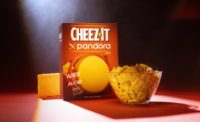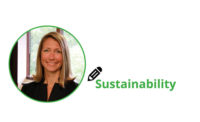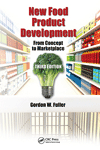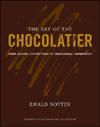
Music To Their Ears
By Dan Malovany
Using the world’s first continuous vacuum cooling system, Kuchen-Peter can crank out all-natural conventional and organic breads and rolls that have a longer shelf life than those cooled in ambient temperatures.
In the land that inspired the “Sound of Music,” Austrians have long thought of all-natural breads and rolls as some of their favorite things.
With confidence that even Fräulein Maria would admire, executives at Kuchen-Peter Backwaren GmbH — a mid-sized wholesale bakery located in Hagenbrunn, Austria — decided to step it up a notch 12 years ago and play up to their customers’ demand for higher quality products by producing organic varieties, as well. It’s a tune that has caught on throughout the country.
“Consumers are willing to spend more for premium products,” says Peter Györgyfalvay, managing director of the 33-million euro ($43 million) wholesale bakery. “It’s not only for organic, but also for natural [conventional] products.”
Today, Kuchen-Peter produces 250 varieties of organic breads and rolls and 150-200 conventional baked goods at its 68,000-sq.-ft. plant. The bakery’s top-selling products are salted sticks, a hearty grain roll called a “crunch bit,” poppyseed rolls and Kaiser rolls.
The company touts itself as an innovative bakery, and, indeed, its line of organic breads would fit nicely in any upscale bakery throughout the world. In addition to traditional homemade ryes and dark, dense multigrain breads, the bakery regularly makes baguettes, garlic baguettes, panini and even organic sunflower seed rolls.
The Rolls are Alive…
Among its newest products are a pumpkin seed “bap” or mini-loaf and a walnut roll made with all organic ingredients. Unlike many so-called organic breads in the United States, Kuchen-Peter’s products aren’t “made with organic” items that contain a blend of organic and non-organic ingredients. Instead, they’re the real McCoy. The pumpkin seed bap, for instance, is made with flour, pumpkin seeds, yeast, linseed, baking agents, vegetable, spices and cider vinegar that all are organic.
Conventional products make up 40% of the plant’s volume, which is considerable. For instance, the bakery cranks out more than 1 million Kaiser rolls on any given day. Annually, the company produces 143 million rolls, 4.24 million loaves of bread, 12.8 million loaves of white bread and 2.85 million pastries.
All fresh products are delivered within 180 kilometers (108 miles) of the bakery. However, organic baked goods are par-baked and frozen, then distributed to supermarket in-store bakeries and other customers throughout the country. Because of the greater distribution area, it’s not surprising that the company’s frozen line is ringing up sales at a faster rate.
In fact, Kuchen-Peter now is one of the biggest, if not the biggest, producers of organic baked goods in Austria, and Györgyfalvay projects that the bakery’s annual sales should rise 10% annually over the next five years.
Stabilize ... Stabilize
Initially, distributing all-natural baked goods, let alone organic ones, posed a challenge due to the products’ relatively short shelf life. With preservatives not being counted as an option, Kuchen-Peter turned to vacuum cooling.
In addition to reducing cooling times to under five minutes from 90 minutes with ambient cooling, vacuum cooling helps keep par-baked products fresh for a longer period of time, Györgyfalvay explains. In fact, Kuchen Peter’s breads and rolls can be stored at temperatures ideally around 40°F for up to six weeks or at room temperature for a shorter period of time. Consequently, the company doesn’t have to deliver the vacuum-cooled baked goods in refrigerated trucks, and they don’t have to be stored in freezers by its customers.
The concept behind vacuum cooling isn’t new. In fact, the scientific principles behind it go back to the 17th Century, but only in recent years has the technology advanced enough to make it viable from an economic point of view.
Because there is no immigration of water, due to the lowered pressure, vacuum cooling stabilizes the products’ soft inner crumb and helps maintain volume and its crunchy crust. Moreover, the vacuum pressure heightens the effect of starch gelatinization, which results in slower starch retrogradation, or a reduction in the staling process. Because the products are not exposed to ambient air, molding also becomes less of an issue.
Additional benefits, Györgyfalvay notes, include shorter baking times, not only during the initial baking process at Kuchen-Peter, but also when the par-baked products are baked off at supermarket in-store bakeries. That reduction in baking time, estimated to be up to 25% for some products, can free up oven capacity.
Kuchen-Peter first explored vacuum cooling back in 1992 and upgraded its system in 2003 with a vacuum cooler chamber that cooled a stack of 20 baskets or 80 loaves of bread in five minutes or less.
Last year, the bakery installed a continuous vacuum cooling line with a carousel of six chambers that can take freshly baked goods directly from a revolving oven and cool them in three minutes at a rate of 17,000 rolls an hour.
Dough is Near …
Nearly 300 employees work at the Hagenbrunn plant, which houses 14 lines in three separate halls. Four of these lines produce frozen products while three lines make organic baked goods. The bakery has a farm of 33 silos that hold not only flour, but also a variety of organic and non-organic ingredients. Overall, the plant is International Food Standard (IFS) certified.
In the first hall, much of the operation is semi-automated, mainly because of the number of changeovers and the hundreds of varieties of fresh and frozen product that must be produced each day. Here, the company relies on single-rack ovens and multi-deck, thermo-oil ovens with automatic loaders to produce different kinds of products at the same time. Although the facility is designed for versatility, several lines in the bakery’s first two halls are quite automated, Györgyfalvay says.
The new third hall houses the roll line with the continuous vacuum cooling system. With the new line, Györgyfalvay plans to not only extend the baked goods’ shelf life, but also expand the bakery’s portfolio with innovative baked goods over the next year. As demand for Kuchen-Peter’s products continues, he adds, the 21,500-sq.-ft. hall eventually will hold three production lines.
Currently, two 350-lb. spiral mixers feed the new roll line. A third bowl is available to ensure a continuous flow of dough to the process.
After the bowls are elevated to the hopper, an eight-pocket divider gently cuts and then rounds out 17,000 pieces an hour. Following a short intermediate proof to relax the dough, the pieces pass by a stamper before entering a space-saving modular proofer for about 60 minutes.
The dough pieces then are loaded automatically into a plate circulating oven, which has 26 9- by 3-ft. plates that move up and down in a modular fashion before the products are unloaded into the continuous vacuum cooling system. Bake times are typically 14 to 18 minutes for rolls.
After cooling, many natural and organic par-baked products are conveyed to an enclosed “clean” room where they are packaged. In this room, employees must wear a face mask, hairnet, clean shoes, a clean lab coat and gloves. The bakery uses filtered air to keep the area free from mold spores and other bacteria. Typically, rolls are packaged 60 to a plastic-lined case. Cases are then palletized and stored in the bakery’s 700-pallet holding freezer before shipping.
A Long, Long Way…
Although Kuchen-Peter’s product lines consist primarily of breads and rolls, Györgyfalvay’s father, Paul, founded the company in 1965 with just two workers who initially produced krapfen, the Austrian version of the berliner — a hole-less doughnut. In fact, the name Kuchen-Peter roughly translates into English as “cake Peter.” It wasn’t until 1983 that the bakery began producing breads and rolls.
The company still produces krapfen and other pastries, but they comprise only a small part of the bakery’s overall volume. Györgyfalvay, who is a master baker and pastry chef, hopes to eventually return to the company’s roots and produce traditional Austrian sweet goods.
“My vision or dream is to do more pastries,” he says. “But at the current time, I have so many projects in the works. When there’s time enough, we’ll get to that project.” SF&WB
At a Glance
Company: Kuchen-Peter Backwaren GmbH
Location: Hagenbrunn, Austria
Annual Sales: 33 million euro ($43 million)
Products: Fresh and frozen par-baked conventional and organic breads and rolls. Pastries.
Plant Size: 68,000 sq. ft.
No. of Lines: 14
No. of Employees: 280-310
Distribution Area: Fresh-delivered up to 100 miles from bakery. Frozen par-baked products delivered throughout Austria.
Managing Director: Peter Györgyfalvay
Web site: www.kuchenpeter.at







